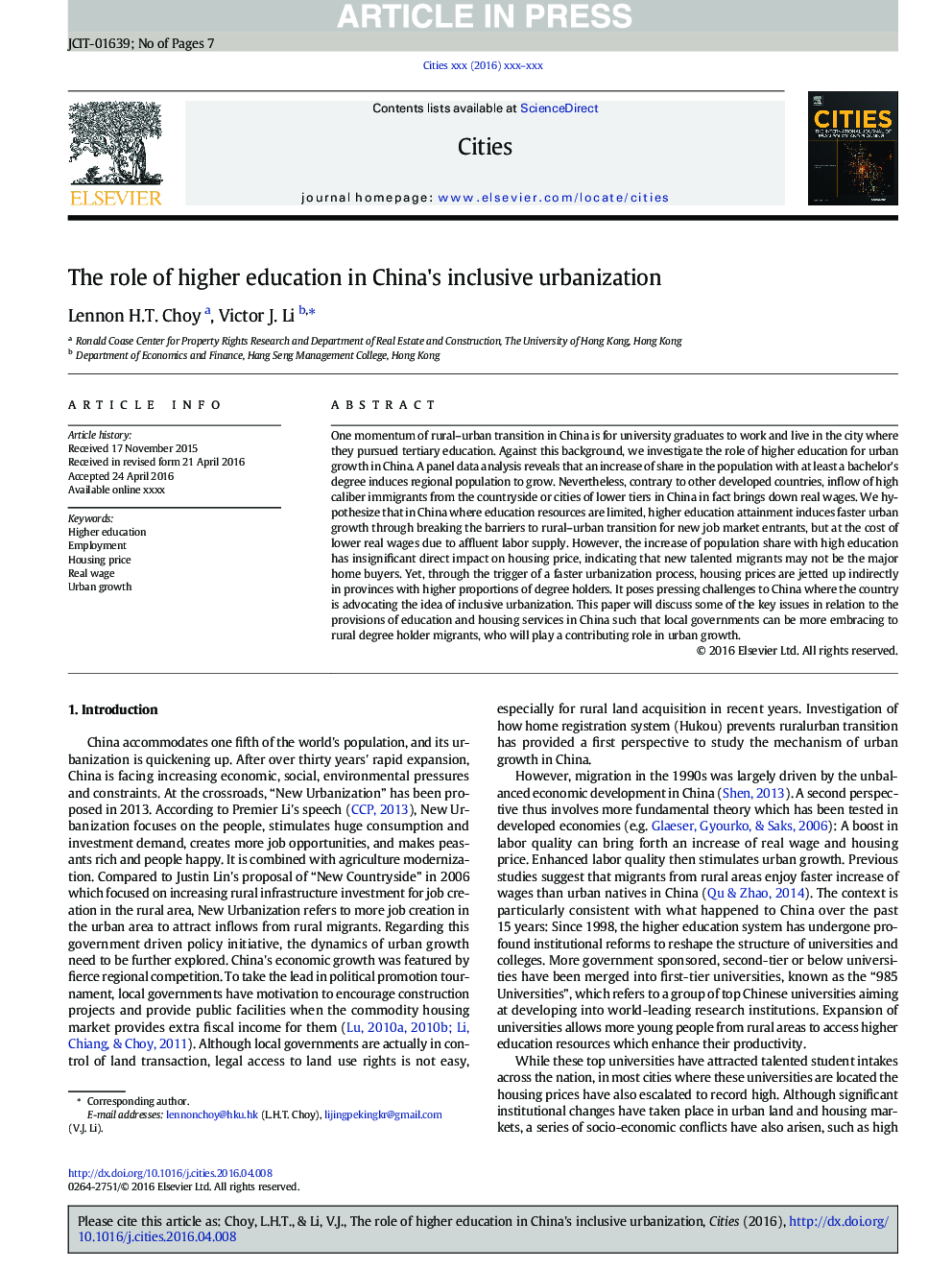| Article ID | Journal | Published Year | Pages | File Type |
|---|---|---|---|---|
| 7417868 | Cities | 2017 | 7 Pages |
Abstract
One momentum of rural-urban transition in China is for university graduates to work and live in the city where they pursued tertiary education. Against this background, we investigate the role of higher education for urban growth in China. A panel data analysis reveals that an increase of share in the population with at least a bachelor's degree induces regional population to grow. Nevertheless, contrary to other developed countries, inflow of high caliber immigrants from the countryside or cities of lower tiers in China in fact brings down real wages. We hypothesize that in China where education resources are limited, higher education attainment induces faster urban growth through breaking the barriers to rural-urban transition for new job market entrants, but at the cost of lower real wages due to affluent labor supply. However, the increase of population share with high education has insignificant direct impact on housing price, indicating that new talented migrants may not be the major home buyers. Yet, through the trigger of a faster urbanization process, housing prices are jetted up indirectly in provinces with higher proportions of degree holders. It poses pressing challenges to China where the country is advocating the idea of inclusive urbanization. This paper will discuss some of the key issues in relation to the provisions of education and housing services in China such that local governments can be more embracing to rural degree holder migrants, who will play a contributing role in urban growth.
Related Topics
Social Sciences and Humanities
Business, Management and Accounting
Tourism, Leisure and Hospitality Management
Authors
Lennon H.T. Choy, Victor J. Li,
